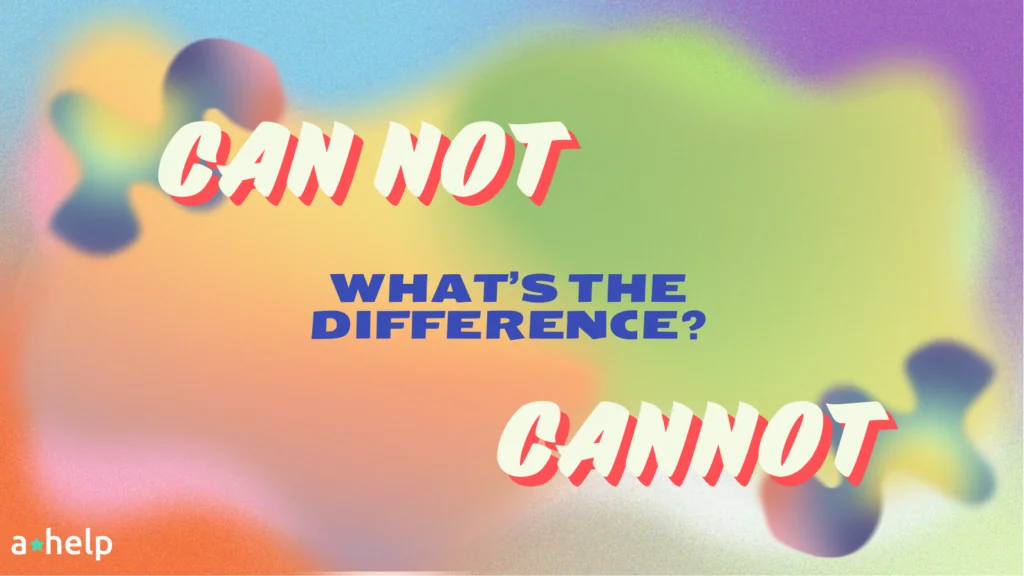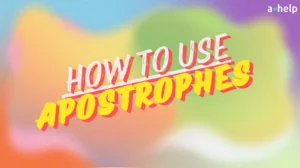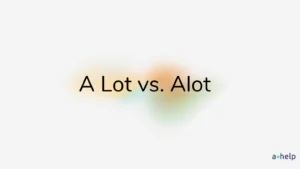Ever stumbled over when to use “cannot” and when it’s okay to write “can not”? You’re not alone—this small difference often confuses both new and seasoned writers. Essentially, “cannot” is the go-to choice in most cases; it’s a single word that means something is impossible. “Can not” is used less frequently and usually appears when you want to emphasize the “not” part, almost like saying “can choose not to.”

✅ AI Essay Writer ✅ AI Detector ✅ Plagchecker ✅ Paraphraser
✅ Summarizer ✅ Citation Generator
Why does this matter? Well, the choice between these two can impact the tone of your writing. Using “cannot” is straightforward and slightly more formal, which is perfect for academic or professional writing. Using “can not,” especially for emphasis, fits more casual or spoken English. Remembering this small distinction can polish your writing and make your meaning clearer, no matter the context. So next time you write, think about what you really want to say before deciding which form to use.

When to Use ‘Cannot’
“Cannot” might seem like just another contraction, but it’s a powerful little word that tells us when something is totally off the table. This word merges “can” and “not” into one, signifying that something isn’t possible or allowable. Here’s how to get it right: either check the rules below or use a grammar checker.
Typically, you’ll use “cannot” when you’re talking about something that’s impossible. It’s the strongest way to express prohibition or impossibility in English, making it clear that there’s no room for flexibility. For example, if your friend wants to borrow your notebook but you need it for class, you might say, “I cannot give it to you right now.” It’s definitive and leaves no room for misunderstanding.
Here are a few more examples where “cannot” fits:
- “She cannot attend the meeting because she has another commitment.”
- “You cannot enter this area without proper identification.”
- “We cannot ignore the consequences of climate change.”
In these sentences, “cannot” helps to establish that these actions are not possible under the current conditions. It’s often used in formal writing, where clarity and firmness are key, but it’s just as useful in everyday conversation to express clear and direct limitations.
So, when you need to make it absolutely clear that something isn’t possible or allowed, “cannot” is your go-to choice. It delivers your message with the certainty and directness that other forms, like “can not,” might not convey.
When to Use ‘Can Not’
While “cannot” is often the go-to for expressing impossibility or denial, there are times when splitting it up into “can not” really emphasizes your point. The phrase “can not” is useful when you want to highlight the optionality of not doing something. It suggests that while something is possible, it might not be the choice you or someone else decides to take. For example, if you’re discussing future plans that are still up in the air, you might say, “We can go to the beach tomorrow, or we can not go if it’s raining.” Here, “can not” emphasizes that choosing not to go is a deliberate option.
Here are a couple more examples:
- “You can join us for dinner, or you can not if you have other plans.” This sentence gives clear permission to decide not to join.
- “He can choose to apologize, or he can not and face the consequences.” This emphasizes the choice of not apologizing as a viable, albeit less desirable, option.
In scenarios where personal choice and the freedom to decide not to engage are key, using “can not” makes it clear that the action is optional. This difference can change the tone and implication of your statements, making “can not” a useful tool in your writing arsenal for adding depth and emphasis to your choices.
FAQ
Follow us on Reddit for more insights and updates.





Comments (0)
Welcome to A*Help comments!
We’re all about debate and discussion at A*Help.
We value the diverse opinions of users, so you may find points of view that you don’t agree with. And that’s cool. However, there are certain things we’re not OK with: attempts to manipulate our data in any way, for example, or the posting of discriminative, offensive, hateful, or disparaging material.